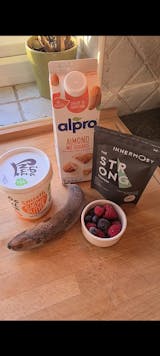WHY IT MATTERS
Because dealing with stress can lead to a better quality of life.
Welcome to our email course on How to Deal With Stress. Sign up below to get started.
This email course is guest-edited by Dr Deba Choudhury-Peters, Chartered Clinical Psychologist at DCP Therapy in London and Surrey. Over five daily emails, we’ll discuss the background and fundamentals of stress, the science behind it and how it affects us, the different types of stress, and how we can best deal with it.
Topics covered:
Day 1. Background and introduction to stress.
Day 2. 'Good' stress vs 'bad' stress.
Day 3. External ways to deal with stress.
Day 4. Internal ways to deal with stress.
Day 5. Summary of the key points.
This email course contains a series of emails, about 800-1200 words each in length, of understandable insights and practical advice, based on science and research, and edited by an expert in the field. We hope you enjoy reading it as much as we've enjoyed putting it together.
By signing up you’ll also join the Innermost community and will receive the occasional email that we think you'll find useful. You'll also receive a code that you can use for your first purchase. After signing up below, please check your junk folder if you don’t get an email within a few minutes and be sure to and add us to your safe sender list.
If you'd like to see our other email courses, you can find them here.























